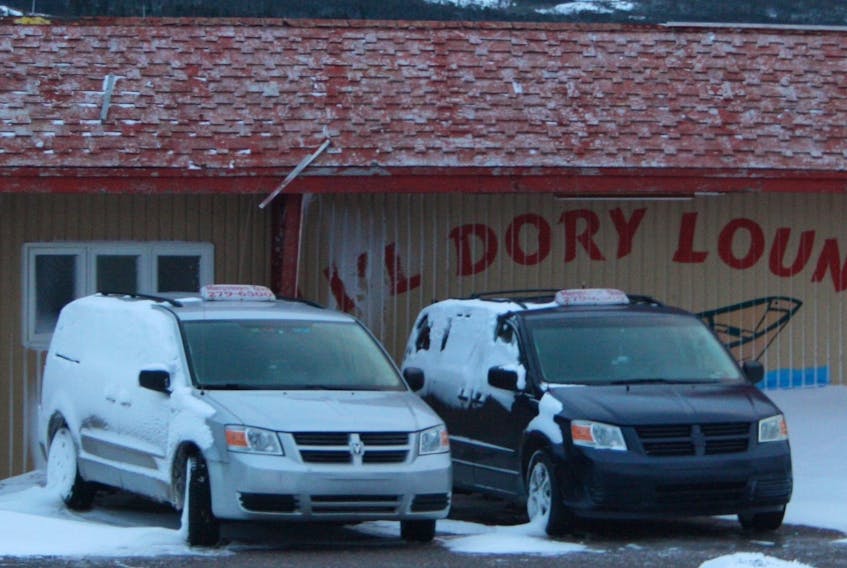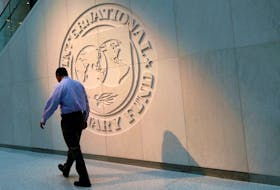MARYSTOWN, N.L. — Eric Foote calls them “scab cabs.” Some use the term “ghost taxis.”
Call them what you will, for taxi operators on the Burin Peninsula, people illegally carrying others around in their vehicles in exchange for a few dollars are pushing them out of business.
Something has to be done, says Foote, who owns Marystown Taxi and has five licences.
“They can do it for little or nothing. They don’t have to come up with the insurance. They don’t have to come up with their business fee. They don’t have to do nothing,” says Foote, who says he knows of at least seven or eight illegal taxis in the Marystown area.
Like other industries on the Burin Peninsula, taxiing has been hard hit during this most recent slump in the economy.
"The sad part about it is people don’t realize that by doing that … that one of these days the taxi might not be there.” — Eric Foote
During the week, Foote says he has three taxis on the road and that’s plenty. He puts the other two on Friday evening for the weekend.
“There’s still nothing big about it,” he says of the amount of business. “Everything is dead, b’y. There’s no work here, sure.”
Marystown Taxi is the only taxi company operating in Marystown at the moment. Radio Cabs, which has the other 10 licences permitted under the Town of Marystown’s regulations, shut down last year.
According to a discussion during a recent council meeting, the owner is trying to sell their interests in the business.
‘People don’t realize’
The Grand Bank-Fortune area hasn’t had a regular local taxi service since Matthews Taxi stopped operating on a daily basis last year.
The decision was a result of lack of business and high operational costs, according to April Stapleton, who took over running the business after her father’s passing last September.
Illegal taxiing has been an issue for some time, she said, adding people don’t understand if they are paid to give someone a ride in their vehicle – even if it’s family or friends – it’s taxiing.
Stapleton says she gets lots of messages from people wondering if taxis might be operating on a particular weekend, especially if there’s an event happening. She said she feels bad and does put them on if she thinks a profit can be made, but often it hasn’t been worthwhile.
Foote’s Taxi, meanwhile, a daily service between Grand Bank-Fortune and St. John’s, has been impacted by people seeking out rides on social media, Stapleton says.

“Like they’ll book with us and then you’ll see it on Facebook that they’re still looking for a ride in St. John’s, and then that night … they’ll call us and cancel,” she says.
“You know it’s because they got a ride. The sad part about it is people don’t realize that by doing that … that one of these days the taxi might not be there.”
The support from the community has been wanting, Stapleton said.
“It seems like around here everybody (would) sooner give (the money) to anybody other than a local business, basically,” she said.
Tackling the problem
Some time ago the Town of Marystown applied to the provincial government for approval to create a municipal enforcement officer position to enforce the town’s bylaws.
The town is optimistic it will get the go ahead later this year and feels it could be helpful in catching and shutting down illegal taxis.
Planning and development control director Alje Mitchell acknowledges proving someone is operating an illegal taxi won’t be easy, however.
Foote, meanwhile, says he hopes the town will be able to do something about scab cabs.
Fares related to clients of programs funded by the province are keeping him going at the moment, he says, not the routine everyday cash trips.
“I wouldn’t be on the road only for the government trips I’m getting,” he said.
High insurance premiums for taxis a problem
Compounding matters for taxi operators in the province are high insurance premiums.
Foote says it costs him $6,500 per vehicle annually for insurance.
For Foote’s Taxi and Matthews Taxi the total cost was $42,000 a year, Stapleton said, with just under half of that for the local taxi service.
The Public Utilities Board (PUB) acknowledged in the report on its recent review of automobile insurance in Newfoundland and Labrador that recent substantial increases in premiums have created a crisis in the taxi industry.
“These premium increases are the result of the extremely high loss ratios that have been experienced for this class of business,” the report states.
“Government and the taxi operators have already taken the first steps to strengthen the taxi industry and it is expected that these measures will lead to lower loss costs in the long term. Unfortunately, it is unlikely that these actions will result in immediate measurable reductions in the taxis loss costs and premiums.
“In the circumstances, it may be advisable to bring together representatives from the taxi and insurance industries, as well as the various levels of government, to build on the work that has already been done and to identify additional measures that can be implemented in the near term to control loss costs and to provide relief to the taxi operators.”









